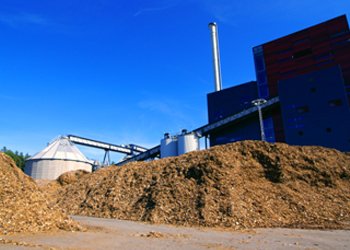Bioenergy could count for around a tenth of the UK’s total primary energy demand by 2020, according to the latest assessment from the Government.
Yesterday the Government set out its vision for bioenergy to coincide with a new report by the UK’s National Centre for renewable materials and technologies which suggests the sector could support as many as 50,000 jobs by 2020.
The UK bioenergy strategy, published jointly by DECC, Defra, DfT, stresses the need to make biomass sustainable and low carbon, with help from Government to “steer” the sector in the right direction.
Bioenergy must also be “cost effective”, according to the strategy, while policy makers need to keep an eye on linked issues such as food security and biodiversity, states the strategy.
On the other hand, if we leave biomass out of the UK’s energy mix it could increase the cost of decarbonising by around £44 billion, according to Energy Technology Institute research referred to by the Government’s report.
Bioenergy is seen as crucial for the UK to meet its 2020 renewables targets and 2050 carbon reduction targets.
But doubts have been raised about its environmental credentials.
Acknowledging this, Energy Minister Charles Hendry said: “We recognise that bioenergy is not automatically low carbon, renewable or sustainable. So that’s where our role as Government is important as this sector develops, and why we’ve been working with DEFRA, the Department for Transport (DFT) and a number of experts on the development of a Bioenergy Strategy.
“Alongside this we have published a rigorous analysis of the carbon impacts of the use (and non-use) of wood for energy, and a study of the opportunities and trade-offs of different bioenergy deployment pathways.”
Members of the industry expressed relief the Government has finally recognised the importance for biomass.
Gaynor Hartnell at the Renewable Energy Association, which is leading the Back Biomass campaign, said: “It is particularly good to see the Government making clear that ongoing work to make the industry more sustainable will be done in partnership with industry to ensure businesses can deliver these increased carbon savings in the most cost effective way possible.”





